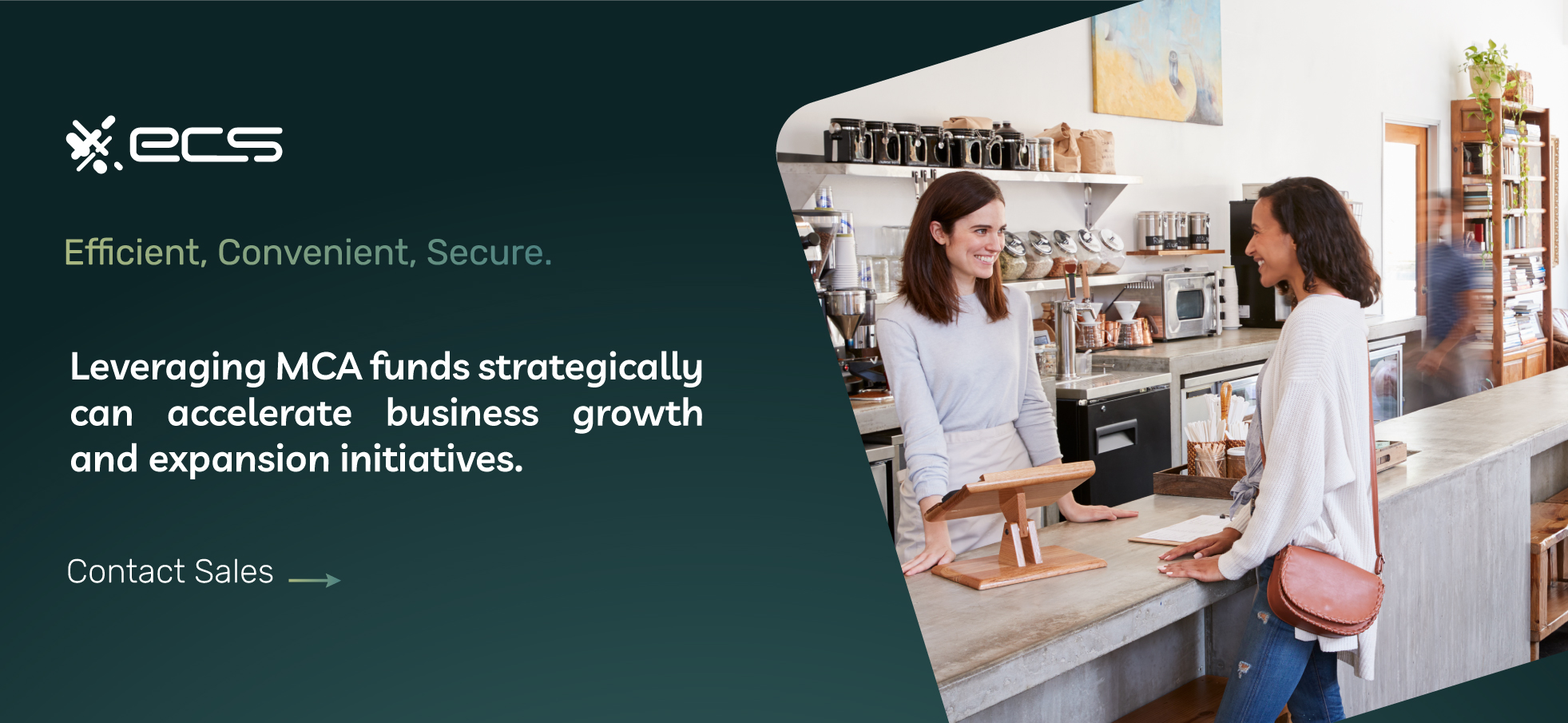A new type of loan is starting to change the landscape for smaller retailers. It provides a lifeline for businesses that need to increase cash flow quickly to handle expenses or deal with rapid growth strategies. These loans are known as merchant cash advances (MCAs).
Funding options for e-commerce and small businesses are sometimes limited. Slow approval processes and the possibility of denial mean that many e-commerce businesses that need a fast influx of cash are often left with few options.
You can apply for an MCA quickly, and in some cases, the funds are available to you within 48 hours of completing the application. You can spend the funds on virtually any business-related expense, from inventory to payroll or for emergencies.
While an MCA has many advantages for small businesses, it also has a few drawbacks that make it less than ideal in certain situations.
To help you decide if an MCA is right for your business, we’ll explain exactly how an MCA works and go over the pros and cons of this fast funding option.
What Is A True Merchant Cash Advance (MCA)
An MCA is a type of instant loan or, more accurately, a cash advance. Once applied for and approved, you receive the entire amount of cash applied for in one lump sum.
With an MCA, lenders typically approve you within just a few days, and you can receive the full advance amount immediately after approval.
You can immediately use the cash for your business expenses once the funds are transferred to your bank account.
An MCA also places few limitations on how the funds can be spent. This gives e-commerce businesses and other retailers with unique business models the flexibility to spend the money exactly how they need to to get the most benefit.
The lender bases the repayment schedule on your future credit card sales through your merchant account and online store. Merchant cash advance companies use your debit and credit card sales figures to determine how much money you qualify for.

How Does True Merchant Cash Advance Work?
In some ways, an MCA works similarly to a traditional business bank loan or line of credit. However, several important differences exist, each with advantages and disadvantages.
Below is the process for obtaining an MCA for your business.
Step 1 Choose An MCA Merchant Cash Advance Lender
When choosing a lender, you will want to look at merchant cash advance reviews and other information. Different lenders selling MCA products will each have their own options. You want to find a lender that fits your current needs and your type of business.
Step 2 Applying For A Merchant Cash Advance
Once you choose a lender, you then need to apply for an MCA.
The approval process differs from many other business loans and mostly relies on your annual sales figures. Although the lender will do a soft credit check, your credit is less important than your sales numbers over the past year.
One main benefit of an MCA is that you don’t need great credit or collateral to be approved. In some cases, you may also have to supply certain financial records and bank statements.
Overall, the application process is considerably faster and easier than a typical small business loan through a bank or the Small Business Association loan program.
Step 3 Receive The Loan Offer & Sign The Contract
From the time you submit your application and all required documents, the approval process can be as short as two business days.
During the application process, you can request a specific loan amount. However, you won’t know the specific amount you qualify for until you receive your loan offer.
Your loan offer will include the total cash amount that the lender will deposit in your bank account, the repayment terms, and all fees associated with the loan.
With merchant advanced funding, your repayment total is based on a factor rate. The factor rate is the set number by which your loan amount is multiplied. We’ll explain factor rates in more detail in the next section.
It’s very important that you carefully go over your loan offer and final contract before agreeing. It’s understandable that when a business owner needs cash, there is a strong urge to simply accept the offer. However, you still want to perform your due diligence to ensure the loan doesn’t exacerbate your cash flow issues instead of solving them.
After you accept the loan offer and sign the final loan contract, you will generally receive your funds that same day.
How Do You Repay A True Merchant Cash Advance?
One of the key differences between an MCA and a traditional business loan is how you pay it back.
With an MCA, you pay back the loan through automatic deductions at regular intervals. These intervals are usually daily, depending on the cash advance.
A factor rate and holdback percentage determine the total amount you pay back each day. A factor rate is a number usually between 1.1 and 1.5. You can think of the factor rate as similar to the interest rate for a typical loan.
Your total loan amount is multiplied by the agreed-upon factor rate. The resulting number is the amount you need to pay back.
For example, a $5,000 MCA loan with a factor rate of 1.3 would require a total payment of $6,500.
(Loan Amount) x (Factor Rate) = Total amount to be repaid.
The lender adds any additional fees on top of this amount.
The total amount you qualify for is based on your daily credit card transactions or sales over the past year.
MCA Holdback Percentage
In the previous section, we explained how lenders calculate the total amount for your loan repayment. To determine the amount of each payment, your lender will use a holdback percentage.
The holdback percentage is the percentage of your daily sales that will be used to pay back the cash advance.
In most cases, your merchant account deducts this holdback percentage from your credit and debit card sales and automatically remits it to the lender.
Holdback percentages are generally between 10% and 20% of your total daily sales. For example, if your daily sales are $2,000 and your hold percentage is 10%, your payments will be $200 each day.
(Daily Sales) x (Holdback Percentage) = Daily Payment Amount.
You will continue to make these daily payments until you have paid back the loan amount.
The terms of your loan, such as the factor rate and holdback percentage, do not change over the term or as you pay off the amount.


Fixed Withdrawals From A Bank Account
In some cases, your MCA loan will use fixed withdrawals from your business bank account. Typically, these withdrawals occur either weekly or as monthly payments and maintain a fixed amount that never changes.
Your MCA factor rate and holdback percentage still determine the fixed amount. The only difference is that the lender takes the money from your bank account, not your merchant account sales.
Whatever method of repayment your MCA uses, the payments are always automatic deductions, and you do not make payments via check or other method.
MCA Factor Rate Vs APR
If you’ve shopped for other types of loans, you’re likely familiar with the annual percentage rate (APR). You use the APR to determine how much interest you’ll pay. Generally, shorter-term loans have higher APRs, and longer-term loans have lower APRs.
Since business owners may not be familiar with how factor rates work, an MCA and its total cost can be confusing.
However, you can convert factor rates to a similar APR to give you an idea of the loan value and repayment schedule.
Most MCAs will have a comparable APR of 100% or higher, making them rather expensive loans. However, they are short-term loans with a fast approval process, so that’s the trade-off to consider.
Let’s use a simple example to explain how factor rates and APR compare with an MCA.
Assume you take out a $50,000 merchant cash advance with a factor rate of 1.4 with a holdback percentage that equals $233 per day.
For that loan, you’ll pay the total back in 7 months, and your final APR will be 125%. The total amount you paid back is $70k plus any fees.
The longer you take to repay the loan, the lower your equivalent APR becomes due to the calculation of MCA repayment schedules. But this doesn’t necessarily change the amount paid back.
As a business owner, you should consider the factor rate and comparable APR carefully to determine if an MCA makes sense for your business. In some cases, you might consider a traditional loan instead.
Uses For An MCA
With a cash advance, merchants can use them for almost any business-related purpose. For example, if you’re an online retailer and need money to develop a new e-commerce shopping cart to provide a better online buying experience, you can use an MCA to hire a developer.
This is just one example, but e-commerce retailers can use an MCA to buy inventory, improve their site, or fund other business initiatives.
What Happens If I Can’t Make My MCA Repayments?
If you default on the MCA or are otherwise unable to make the payments, the lender will pursue a judgment against you for the total.
Most MCA agreements contain language where you give up your rights to defend yourself if the lender seeks a judgment against you for the defaulted amount. In general, this means you must repay the entire outstanding amount, and the lender can attempt to place liens or use other methods to obtain the judgment amount.
If you are ever in a situation where you cannot pay back an MCA, you first want to contact the lender to see if they will agree to adjust your loan terms. They may also allow you to pause payments if your business happens to close for some unforeseen but temporary event.
If that doesn’t work, you can also try to obtain a traditional loan with lower rates to pay off the outstanding MCA loan. This is not an ideal situation, but depending on the MCA amount, it may help you keep your business operating.

Merchant Cash Advance Vs. Small Business Loans
These two different loan types can both supply you with the cash you need to fund operations or expand. However, they have some very unique differences that you will want to consider.
Application Process
The application for an MCA is much shorter and easier than a typical small business loan. It’s not uncommon for a small business loan application to take several weeks to prepare as you gather all the required information.
You can typically complete most MCA applications in a single day with far less paperwork and documentation required.
Approval
MCAs will have a much higher approval rate. Industry-wide, the MCA approval rate is around 90%. Small business loans have a far lower approval rate. This is especially true if you have less-than-perfect credit or already have outstanding debt, such as on business credit cards.
Interest Rates
Traditional small business loans will have much lower interest rates. For example, SBA loans can range between 7% and 15%, depending on the length. SBA loans can also have much longer repayment lengths of 5 years or more.
By contrast, most MCAs will have a comparable APR of around 100% or higher, depending on the length of the cash advance. This type of financing option means you should use an MCA for specific purposes related to working capital or other short-term needs.
Collateral
MCAs do not require any collateral. Depending on your credit, typical small business loans will require you to put up collateral. This complicates your loan process and can also jeopardize your personal assets should the loan default.
Merchant Cash Advance Vs. A Business Line Of Credit
These serve two different purposes. Businesses typically use a business line of credit for ongoing purposes; it is a type of revolving credit. As you pay off portions of the line of credit, new credit becomes available.
However, many pros and cons are the same as when comparing MCAs to small business loans.
Business credit lines require strong credit, and the approval process generally takes longer than an MCA. However, the interest rates are generally lower, with most business lines of credit being around 5% to 30%.
Is A Merchant Cash Advance Right For Your Business?
You should view an MCA as a business tool. Like any tool, you should use an MCA when appropriate and avoid using it for purposes it wasn’t designed for.
In certain cases where your business is strong but needs a fast influx of cash to deal with growth or other issues, an MCA can work well despite its high interest.
Just make sure to carefully go over the details of the MCA and make sure you can still maintain your business operations once the daily deductions begin.
When used responsibly, an MCA can be a viable way to address common cash flow problems in an e-commerce or small retail business.
—
ECS Payments provides e-commerce businesses with the latest payment solutions designed to reduce costs and boost sales & conversions. Contact ECS Payments today to learn more about our innovative payment options for e-commerce merchants.
Frequently Asked Questions About Merchant Cash Advances
A Merchant Cash Advance (MCA) is a financing option that e-commerce businesses can use in conjunction with their digital payment processing services. It is tied to future credit card sales using a factor rate. The funds from merchant cash advances can be used for various business needs.
Unlike traditional loans, MCAs focus on sales history rather than credit. Therefore, even merchants with poor credit history, or none, can still apply for and be approved for a merchant cash advance for their business.
To apply for an MCA, you must simultaneously apply for credit card processing services. Your payment processor/lender may require financial records, business information, your EIN or SSN, and other related business information. Though your credit does not determine your approval for an MCA, it may determine if you need a standard or high-risk processing gateway.
MCA repayment occurs through daily automatic deductions that hold back a percentage of your daily sales. The terms remain fixed throughout repayment.
MCAs are ideal for quick, short-term funding needs with a streamlined application process and high approval rates. However, they come with higher APRs. A merchant cash advance could be a great option for businesses that have been declined for traditional loans or have poor credit.
